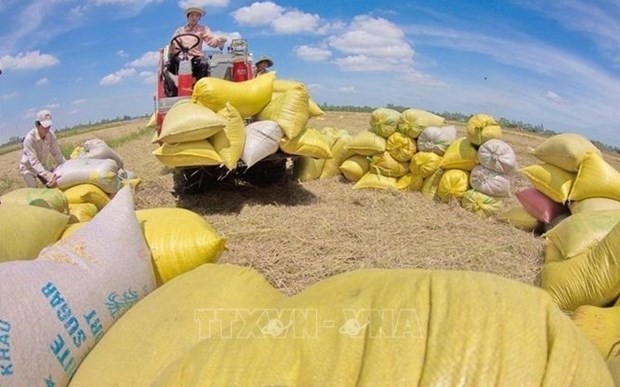
EU remains highly potential importer of Vietnamese rice
Latest
 |
| The EU remains a highly potential importer of Vietnamese rice. (Photo: VNA) |
In 2021, Viet Nam shipped about 60,000 tonnes of rice worth 41 million USD to the EU, rising nearly 1 percent in volume and over 20 percent in value from the previous year. That included some 40,000 tonnes of fragrant rice worth almost 30 million USD, up over 9 percent in volume and nearly 30 percent in value.
The EU - Viet Nam Free Trade Agreement (EVFTA), coming into force on August 1, 2020, has helped raise prices of the Vietnamese grain by 10 - 20 USD per tonne, partly making up for the modest increase in volume due to the COVID-19 pandemic.
According to the EU statistical office Eurostat, among the 10 largest rice suppliers for the bloc, rice from Viet Nam saw the strongest price growth, 20.3 percent, to an average of 781 USD per tonne.
The Foreign Trade Agency under Viet Nam’s Ministry of Industry and Trade attributed those outcomes to businesses’ capitalisation of advantages created by the EVFTA. Besides, they are also stepping up the production of high-quality rice such as fragrant, long-grain, and specialty varieties to enter demanding markets.
For example, fragrant rice accounted for 70 percent of the country’s total rice exports to the EU, compared to 64 percent in the previous year.
With 27 member states, a population of about 516 million, and an annual per capita GDP of over 35,000 USD, the EU has great demand for imported goods, especially agricultural products (more than 160 billion USD each year), from around the world.
To Viet Nam, the EU is the third largest importer of agricultural products, about 5.5 billion USD per year. However, farm produce from the Southeast Asian nation has made up just 4 percent of the bloc’s imports of these commodities. In particular, Vietnamese rice only has a market share of merely over 1 percent.
The Vietnam Food Association predicted rice exports to the EU will continue growing well in 2022. Notably, the improved quality of fragrant rice has met European consumers’ demand.
The optimisation of the EVFTA to export rice at zero-percent tariffs is being promoted by enterprises with large material production zones such as Loc Troi, Tan Long, and Trung An.
Pham Thai Binh, General Director of the Trung An Hi-Tech Farming JSC, said the EVFTA is bringing about greater opportunities for agricultural products of Viet Nam, including rice. The firm has made use of the agreement to sell thousands of tonnes of rice to such markets as Switzerland, France, and Germany.
Meanwhile, Loc Troi was the first to export 126 tonnes of fragrant rice to the EU under the EVFTA, in September 2020. It is currently accounting for nearly 70 percent of Viet Nam’s rice exports to this bloc.

























